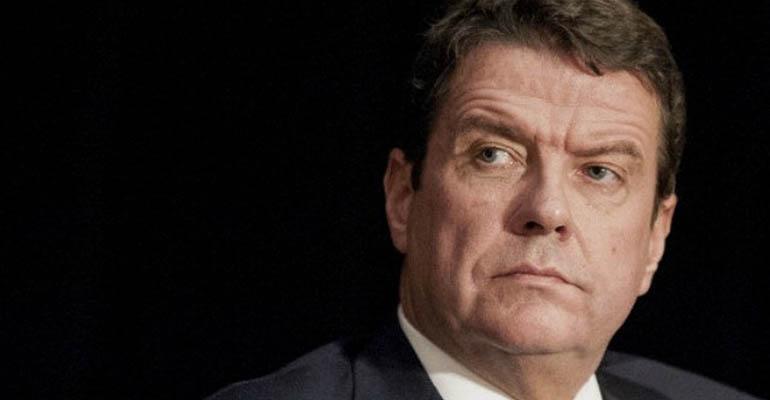By Sonali Basak and Michael J. Moore
(Bloomberg) -- Morgan Stanley President Colm Kelleher, who helped navigate the firm through the financial crisis and was once seen as a potential successor to Chief Executive Officer James Gorman, plans to depart at the end of June.
Kelleher, 61, will continue as a senior adviser after his official retirement, according to an internal memo Gorman sent employees on Thursday.
Another bank departure: Wells Fargo’s Tim Sloan steps down
“I am extremely grateful to have been able to call him my partner,” Gorman said in the memo. “His sharp mind, wicked humor and Irish charm sets him apart in the world of all-too-often dull business leaders.”
Kelleher, who joined the New York-based company in fixed-income sales in 1989, has overseen Morgan Stanley’s investment bank and trading operation since 2010. By taking on the retail brokerage in 2016, he had responsibility for the firm’s two biggest businesses.
Kelleher's departure marks a generational shift at the firm and opens up the competition to replace Gorman, who's said he plans to stick around several more years. Gorman didn’t name a new president, and said in the memo that executives who previously reported to Kelleher will report to the CEO after the departure.
Morgan Stanley in July named Ted Pick, 50, to head the investment-banking and trading division, bolstering his position as a possible successor to Gorman. Franck Petitgas, 58, who’s also considered a CEO candidate, was appointed head of the bank’s international operations as part of the same management shuffle.
Andy Saperstein and Shelley O’Connor, co-heads of the retail brokerage, are also considered in the succession mix, along with asset-management head Dan Simkowitz, Chief Financial Officer Jon Pruzan and tech chief Rob Rooney.
Kelleher rose through the trading and capital-markets ranks. One of nine children who grew up in Ireland’s County Cork and an Oxford University graduate, he served as chief financial officer during the financial crisis, even conducting business lying down on his office floor after suffering a back injury in a car accident.
He helped the investment bank rebuild client confidence after hedge funds pulled money during the crash. He cut back on bulky fixed-income trading positions as Morgan Stanley tried to mimic its success in electronically trading stocks.
Shares of the company, which fell to as low as $9.20 during the depths of the crash in 2008, were at $42.25 in early trading Friday.
Power Struggle
After winning a power struggle with his co-head of the investment bank, Paul Taubman, Kelleher made a push to gain more trading business on the back of underwriting deals and advising on mergers. The bank is now the world’s top equities-trading firm, and has gained share in fixed-income trading in each of the past three years.
Kelleher’s competitive spirit often manifested in the firm’s battles with rival Goldman Sachs Group Inc. In his remarks at Goldman’s annual financials conference in 2013, Kelleher spoke of the “pleasure” he took in passing the host firm in stock-trading revenue, and last year said Morgan Stanley was catching up to Goldman in advisory fees because “we’re nicer guys.”
To contact the reporters on this story: Sonali Basak in New York at [email protected] ;Michael J. Moore in New York at [email protected] To contact the editors responsible for this story: Michael J. Moore at [email protected] Steve Dickson, Daniel Taub





